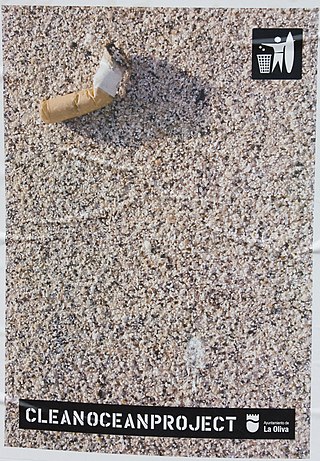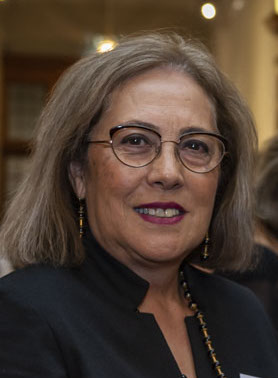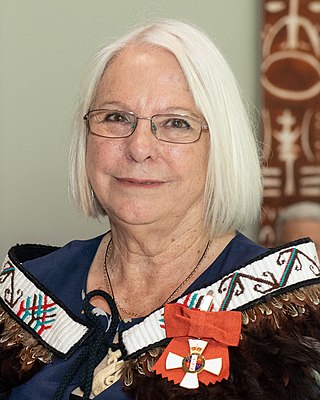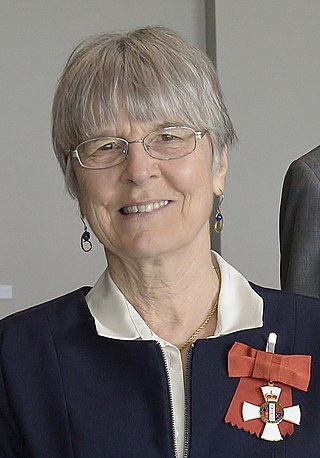Related Research Articles

Human ecology is an interdisciplinary and transdisciplinary study of the relationship between humans and their natural, social, and built environments. The philosophy and study of human ecology has a diffuse history with advancements in ecology, geography, sociology, psychology, anthropology, zoology, epidemiology, public health, and home economics, among others.

The University of Waikato, is a public research university in Hamilton, New Zealand established in 1964. An additional campus is located in Tauranga. The university performs research in the disciplines of education, social sciences, and management and is an innovator in environmental science, marine and freshwater ecology, engineering and computer science. It offers degrees in health, engineering, computer science, management, Māori and Indigenous Studies, the arts, psychology, social sciences and education.

Environmental protection is the practice of protecting the natural environment by individuals, organizations and governments. Its objectives are to conserve natural resources and the existing natural environment and, where possible, to repair damage and reverse trends.

Dame Marilyn Joy Waring is a New Zealand public policy scholar, international development consultant, former politician, environmentalist, feminist and a principal founder of feminist economics.
Katherine Victoria O'Regan was a New Zealand politician. She was a member of parliament from 1984 to 1999, representing the National Party. She served as a minister for the National Government for six of those years.

Tessa Duder is a New Zealand author of novels for young people, short stories, plays and non-fiction, and a former swimmer who won a silver medal for her country at the 1958 British Empire and Commonwealth Games. As a writer, she is primarily known for her Alex quartet and long-term advocacy for New Zealand children's literature. As an editor, she has also published a number of anthologies.
The history of environmental pollution traces human-dominated ecological systems from the earliest civilizations to the present day. This history is characterized by the increased regional success of a particular society, followed by crises that were either resolved, producing sustainability, or not, leading to decline. In early human history, the use of fire and desire for specific foods may have altered the natural composition of plant and animal communities. Between 8,000 and 12,000 years ago, agrarian communities emerged which depended largely on their environment and the creation of a "structure of permanence."
Diggeress Rangituatahi Te Kanawa was a New Zealand Māori tohunga raranga of Ngati Maniapoto and Ngati Kinohaku descent. At the time of her death she was regarded as New Zealand's most renowned weaver.
Muriel Helen Deem was a New Zealand medical doctor, medical officer, Plunket medical adviser and university lecturer.

Linda Tuhiwai Te Rina Smith, previously a professor of indigenous education at the University of Waikato in Hamilton, New Zealand, is now Distinguished Professor at Te Whare Wānanga o Awanuiārangi. The daughter of Sidney Moko Mead, she affiliates to the Ngāti Awa and Ngāti Porou iwi.

Vada Harlene Hayne is an American-born academic administrator who was the vice-chancellor and a professor of psychology at the University of Otago in New Zealand, before moving to Western Australia to take up the position of vice-chancellor at Curtin University in April 2021.

Philippa Lynne Howden-Chapman is a professor of public health at the University of Otago, Wellington, and the director of the New Zealand Centre for Sustainable Cities.
Ida Margaret Gaskin was a Welsh-born New Zealand schoolteacher and politician, known for her expert knowledge of Shakespeare, and for becoming the first woman in New Zealand to win the local version of Mastermind.

Roberta Lee Farrell is emeritus professor at the University of Waikato, New Zealand and a researcher of international renown in the fields of wood degradation, bioremediation, mycology and enzymology.

Rosslyn Joy Noonan is a New Zealand politician and trade unionist. She was an organiser for several trade unions and the Labour Party and served for a time in local government. Later she served as New Zealand's Human Rights Commissioner.
Barbara A. Burlingame is a nutrition scientist specializing in food composition, biodiversity for food and nutrition, sustainable diets and sustainable food systems, and traditional food systems of indigenous peoples. She is involved in nutrition policy development at the global level, and is currently a professor at Massey University.

Amanda Margaret Meredith Oakley is a New Zealand-based dermatologist, specialising in melanoma research and teledermatology. She is a founder and former editor-in-chief of DermNet.
Veronica Strang is an author and professor of anthropology affiliated to Oxford University. Her work combines cultural anthropology with environmental studies, and focuses on the relationship between human communities and their environments. Strang's publications include the books 'The Meaning of Water' ; Gardening the World: agency, identity, and the ownership of water' ; 'What Anthropologists Do', 'Water Nature and Culture' and most recently 'Water Beings: from nature worship to the environmental crisis', which is based on a major comparative study of water deities around the world. Further information is available on her website at: https://www.veronicastrang.com/

Faumuinā Faʻafetai Sopoaga is a Samoan-New Zealand academic specialising in Pacific health, Pacific workforce development, Pacific students, and Pacific communities. She is a professor at the Dunedin School of Medicine at the University of Otago, Dunedin. When she was appointed, she became the first Pacific woman medical doctor to be appointed in a professorial role at any university in Australia or New Zealand, and the first Pacific woman to be appointed a professor at the University of Otago.

Susanna Wood is a New Zealand scientist whose research focuses on understanding, protecting and restoring New Zealand's freshwater environments. One of her particular areas of expertise is the ecology, toxin production, and impacts of toxic freshwater cyanobacteria in lakes and rivers. Wood is active in advocating for the incorporation of DNA-based tools such as metabarcoding, genomics and metagenomics for characterising and understanding aquatic ecosystems and investigating the climate and anthropogenic drivers of water quality change in New Zealand lakes. She has consulted for government departments and regional authorities and co-leads a nationwide programme Lakes380 that aims to obtain an overview of the health of New Zealand's lakes using paleoenvironmental reconstructions. Wood is a senior scientist at the Cawthron Institute. She has represented New Zealand in cycling.
References
- ↑ "The passengers". Hawera and Normanby Star . Vol. XLI. 12 November 1920. p. 5. Retrieved 4 April 2020.
- ↑ "Fencing expert for England". Dunstan Times. 2 November 1936. Retrieved 31 March 2020.
- ↑ "Engagement". Evening Post. 8 October 1936. Retrieved 31 March 2020.
- ↑ "Personal notes". Evening Post. 8 October 1936. Retrieved 31 March 2020.
- 1 2 3 4 "Zena Isabel Daysh" (PDF). CHEC Points. 36. June 2011.
- ↑ "Zena Daysh". The Tatler: 11. 16 April 1941.
- 1 2 3 4 5 Douglas, Ian (2011). "Zena Daysh, CNZM". International Journal of Environmental Studies. 68 (5): 589–590. doi:10.1080/00207233.2011.619782. ISSN 0020-7233. S2CID 96210011.
- ↑ Aylward, Francis (28 April 1960). "A Council of Nutrition". The Times. p. 15.
- ↑ "Our History". CHEC International. Retrieved 30 March 2020.
- ↑ Moir, Jo (17 December 2011). "Renowned Kiwi's ashes buried in NP". Stuff. Retrieved 31 March 2020.
- 1 2 "Waikato University receives $500,000 endowment". University of Waikato. 15 December 2011. Retrieved 30 March 2020.
- ↑ "Dr Zena Daysh Fellowship in Sustainable Development – Scholarships: University of Waikato". University of Waikato. Retrieved 30 March 2020.
- ↑ CHEC (14 August 2018). "Zena Daysh Inaugural Lecture 2018". CHEC International. Retrieved 30 March 2020.